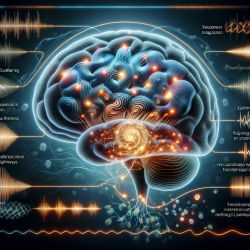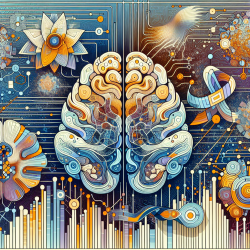Introduction
In the rapidly evolving field of quantum machine learning (QML), the ability to generalize from limited training data is a critical challenge. The research article "Generalization in Quantum Machine Learning from Few Training Data" provides groundbreaking insights into how quantum models can achieve this feat. This blog post explores how practitioners can leverage these findings to enhance their skills and the efficiency of quantum algorithms.
The Power of Quantum Generalization
Quantum machine learning models, particularly those based on parameterized quantum circuits, have shown potential advantages over classical models. The research demonstrates that the generalization error of a quantum model is influenced by the number of trainable gates and the amount of training data. Specifically, the generalization error scales with the square root of the ratio of trainable gates to training data points, T/N. This implies that even with a small dataset, quantum models can achieve robust generalization if the model complexity is managed effectively.
Implications for Practitioners
For practitioners, these findings suggest several strategies to improve the efficiency and effectiveness of quantum machine learning models:
- Optimize Gate Usage: Focus on optimizing only a subset of gates that undergo significant changes during training. This can reduce the generalization error to scale with K/N, where K is the number of significantly changed gates.
- Efficient Data Utilization: Leverage the polynomial scaling of data requirements for efficiently implementable quantum models. This means that practitioners can achieve good generalization with a relatively small dataset.
- Application-Specific Models: Tailor quantum models to specific applications like quantum error correction or dynamical simulation, where good generalization can be achieved with minimal data.
Real-World Applications
The research highlights several applications where these insights can be transformative:
- Quantum Compiling: By reducing the training data size needed for compiling unitaries, the efficiency of quantum compilers can be significantly improved, which is crucial for the quantum computing industry.
- Quantum State Classification: Quantum convolutional neural networks (QCNNs) can classify quantum states with minimal training data, making them suitable for tasks like phase transition classification.
Encouraging Further Research
While the research provides a solid foundation, it also opens up avenues for further exploration. Practitioners are encouraged to delve deeper into optimizing quantum models for specific tasks and to explore the potential of quantum advantage in machine learning. Understanding the conditions under which quantum models outperform classical counterparts remains a key area of interest.
Conclusion
The insights from "Generalization in Quantum Machine Learning from Few Training Data" offer a promising path forward for quantum machine learning. By focusing on efficient model design and data utilization, practitioners can unlock the full potential of quantum algorithms. For those interested in exploring the original research in detail, please follow this Generalization in quantum machine learning from few training data.










